Arizona Travels & Tours
Pictures, Photos, Images, & Reviews.
Pueblo Grande
Ancient Hohokam Ruins
Phoenix, Arizona, USA
George and Eve DeLange
Google Map To Pueblo Grande, Phoenix, Arizona
View Larger Map
 |
| Drawing Of Pueblo Grande, Phoenix, Arizona. Ancient Hohokam Ruins. |
|---|
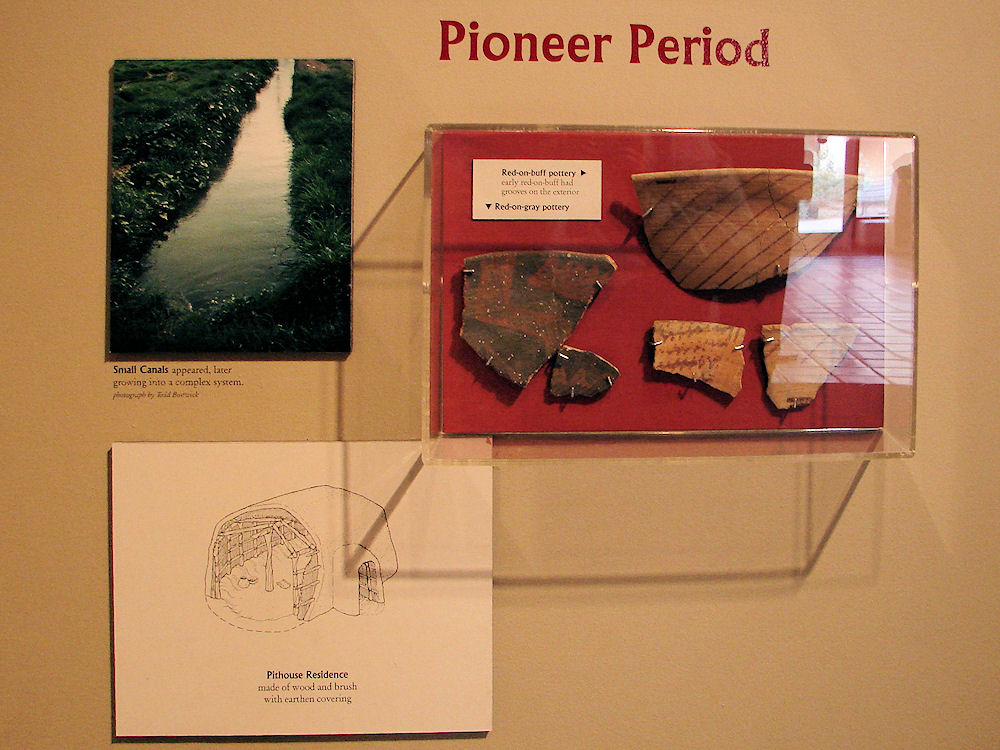 |
| Hohokam Pioneer Period Pueblo Grande, Phoenix, Arizona. Ancient Hohokam Ruins. |
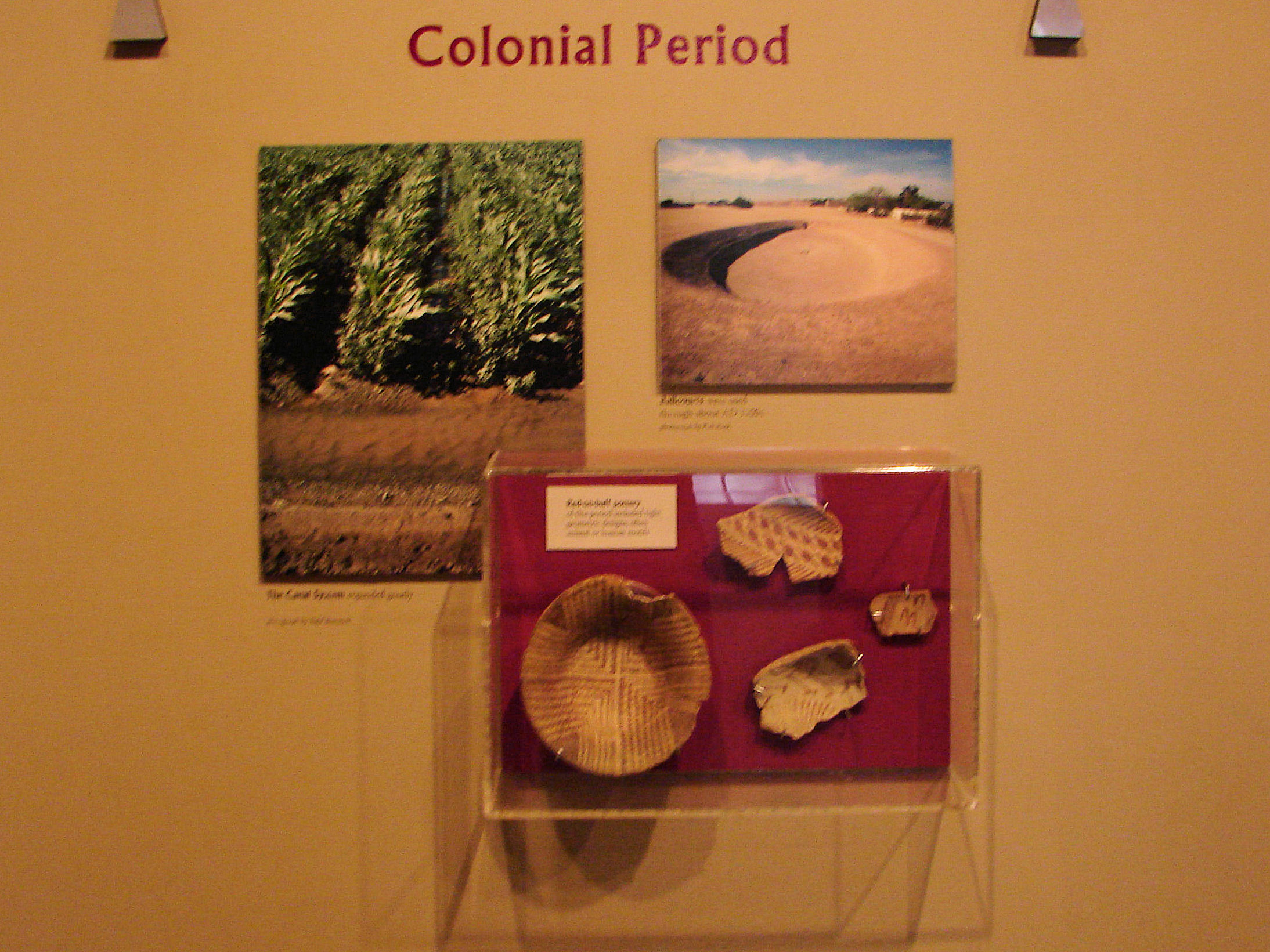 |
| Hohokam Colonial Period Pueblo Grande, Phoenix, Arizona. Ancient Hohokam Ruins. |
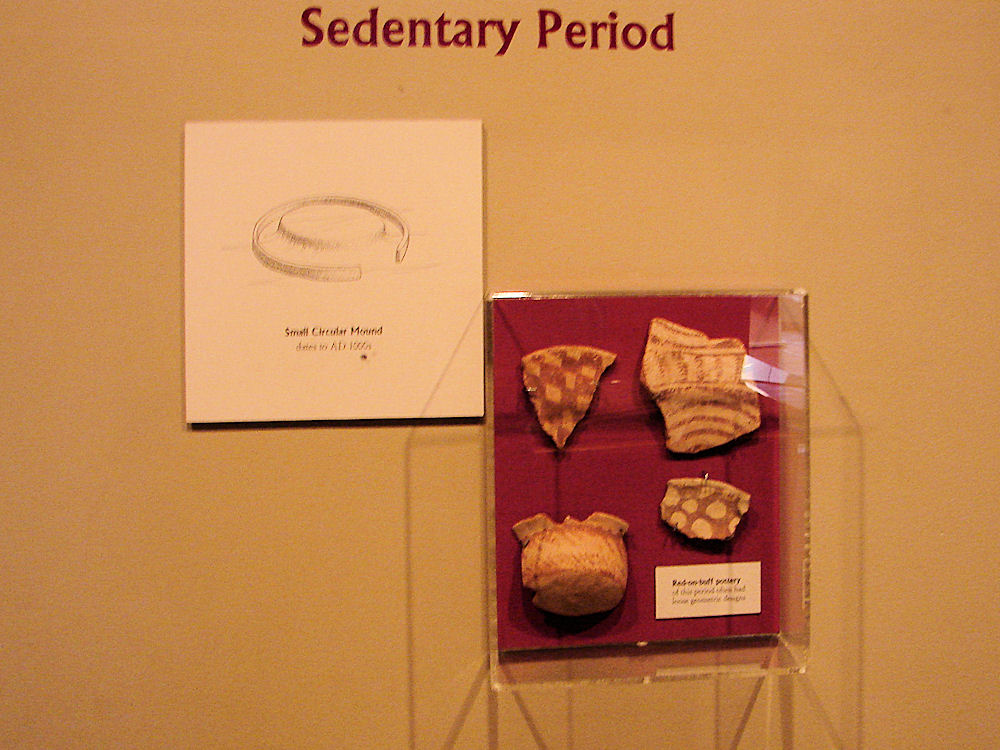 |
| Hohokam Sedentary Period Pueblo Grande, Phoenix, Arizona. Ancient Hohokam Ruins. |
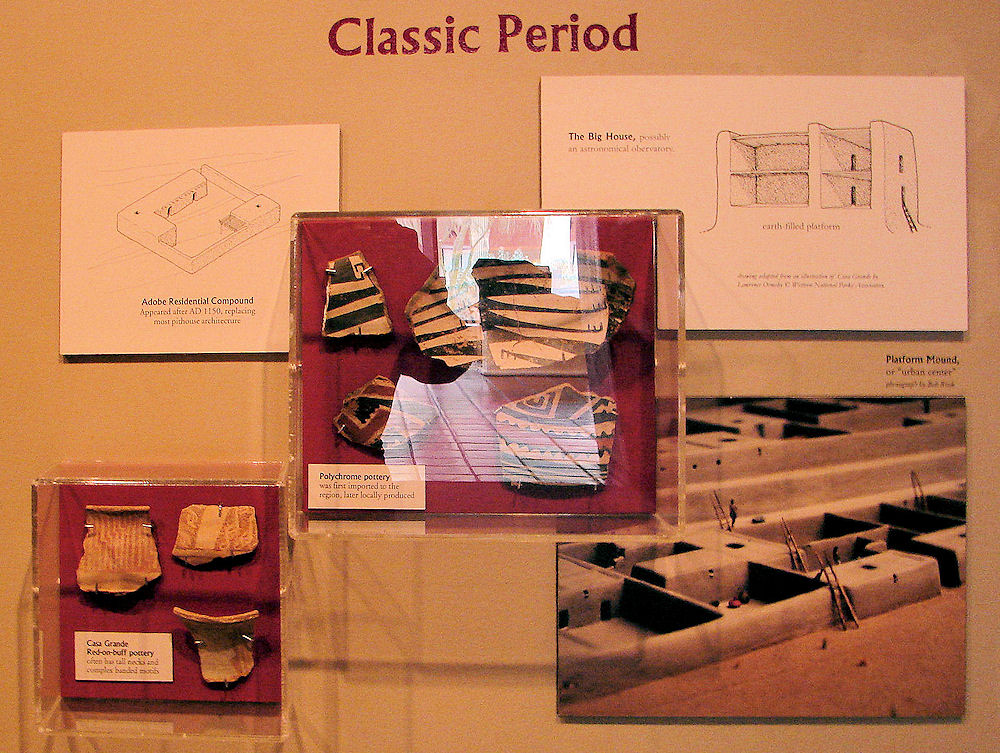 |
| Hohokam Classic Period Pueblo Grande, Phoenix, Arizona. Ancient Hohokam Ruins. |
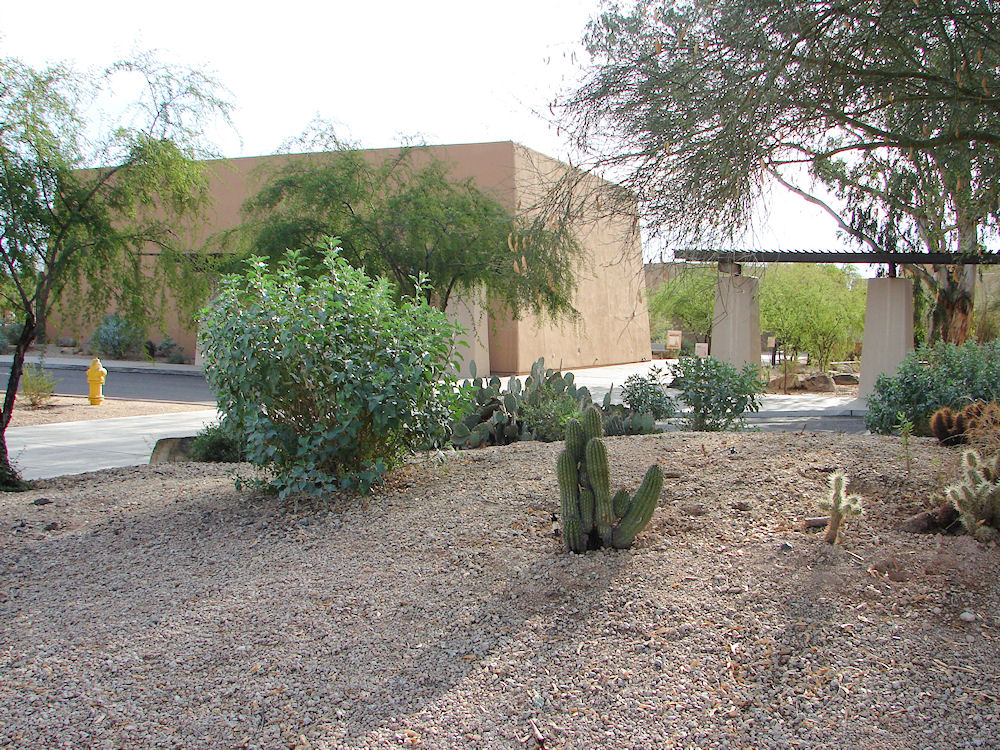 |
| New Museum Pueblo Grande, Phoenix, Arizona. Ancient Hohokam Ruins. |
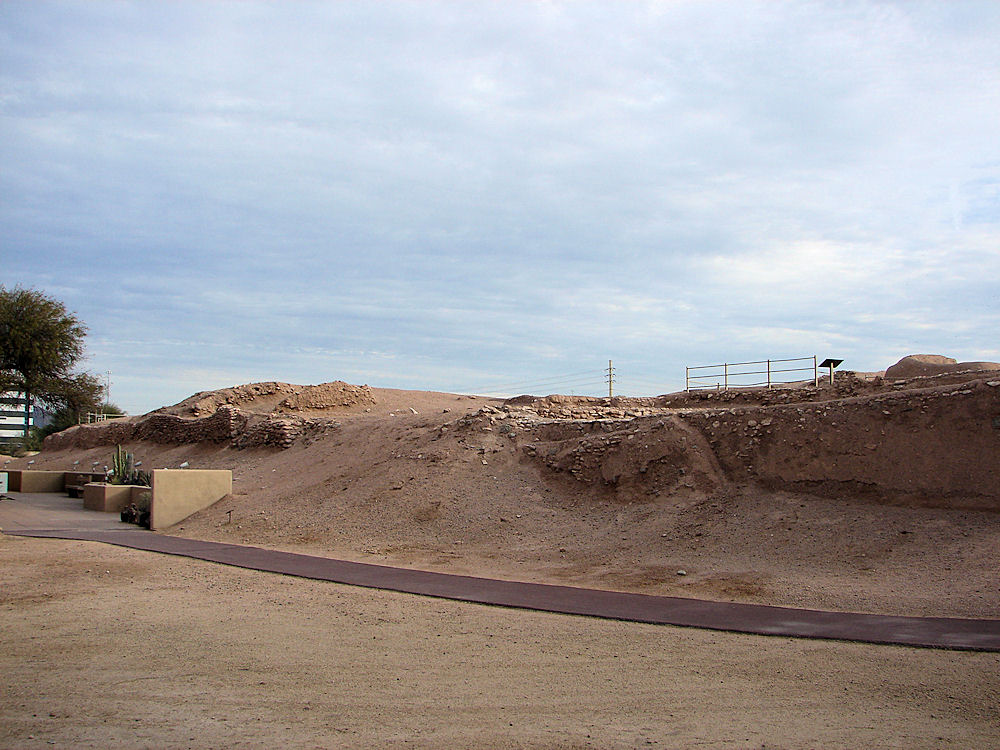 |
| Pueblo Grande, Phoenix, Arizona. Ancient Hohokam Ruins. |
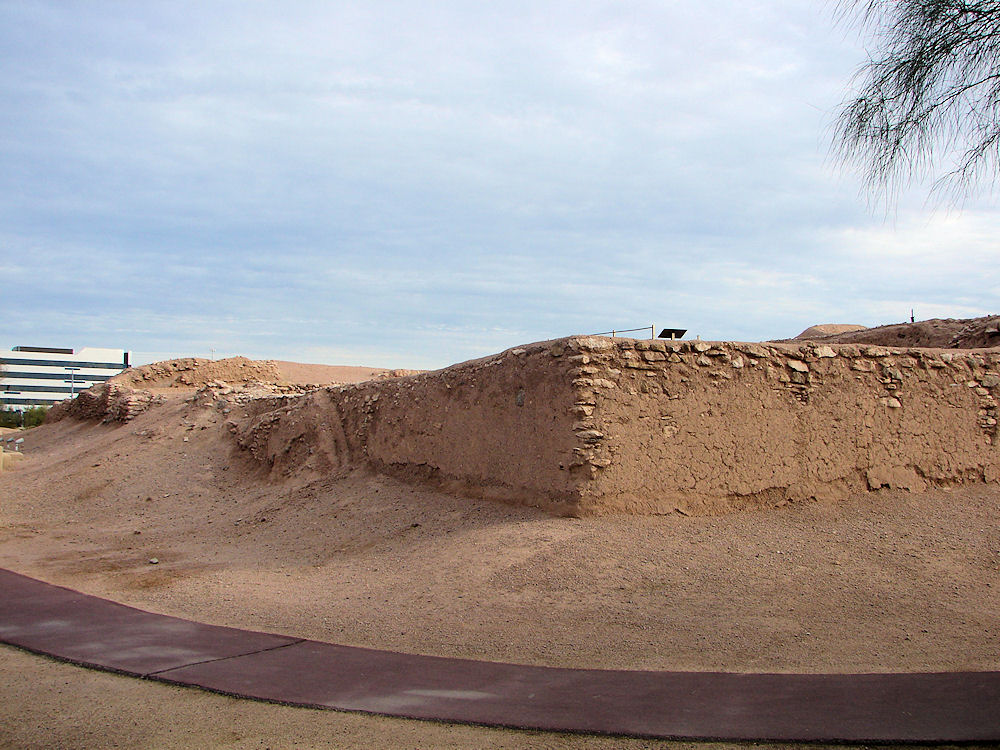 |
| Pueblo Grande, Phoenix, Arizona. Ancient Hohokam Ruins. |
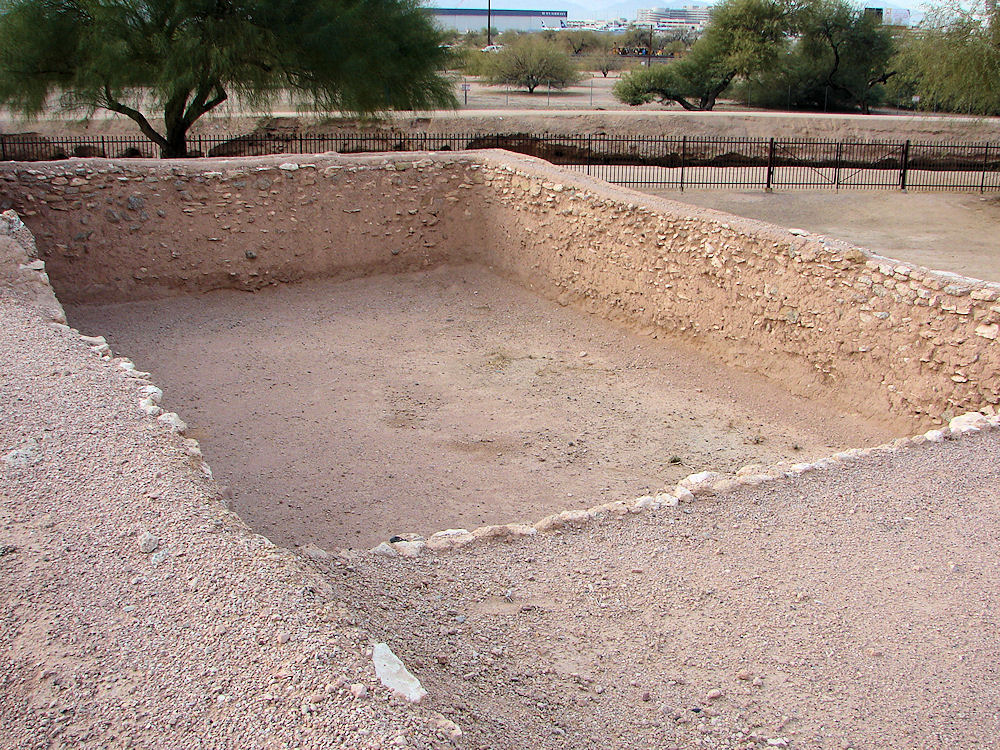 |
| "Storage Room" Pueblo Grande, Phoenix, Arizona. Ancient Hohokam Ruins. |
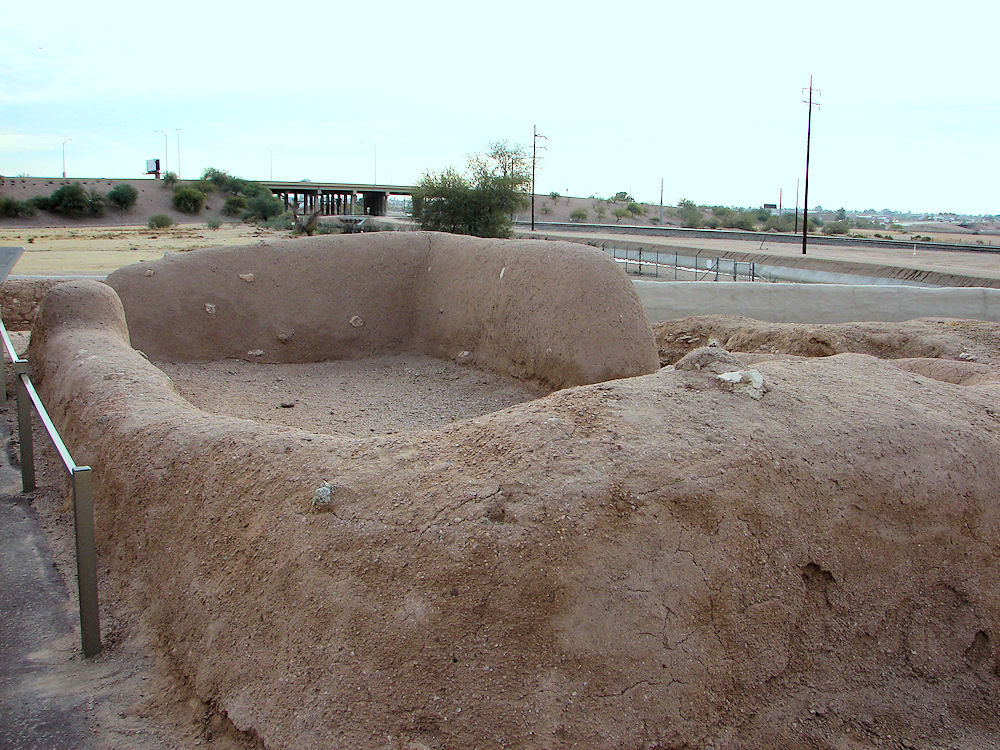 |
| "Calendar Room" Or "Summer Solstice" Room. Pueblo Grande, Phoenix, Arizona. Ancient Hohokam Ruins. This Room Is Aligned With The "Summer Solstice" |
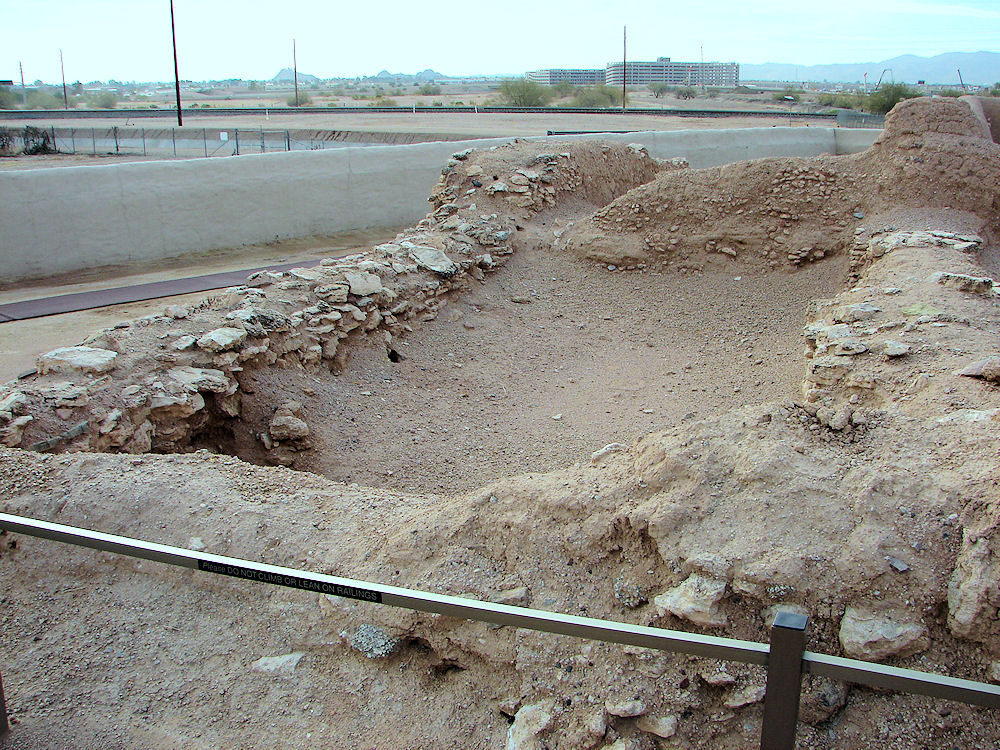 |
| "Miller's Room" Room. Pueblo Grande, Phoenix, Arizona. Ancient Hohokam Ruins. One Of Several Rooms Investigated By Dr. Joshua Miller in 1901. |
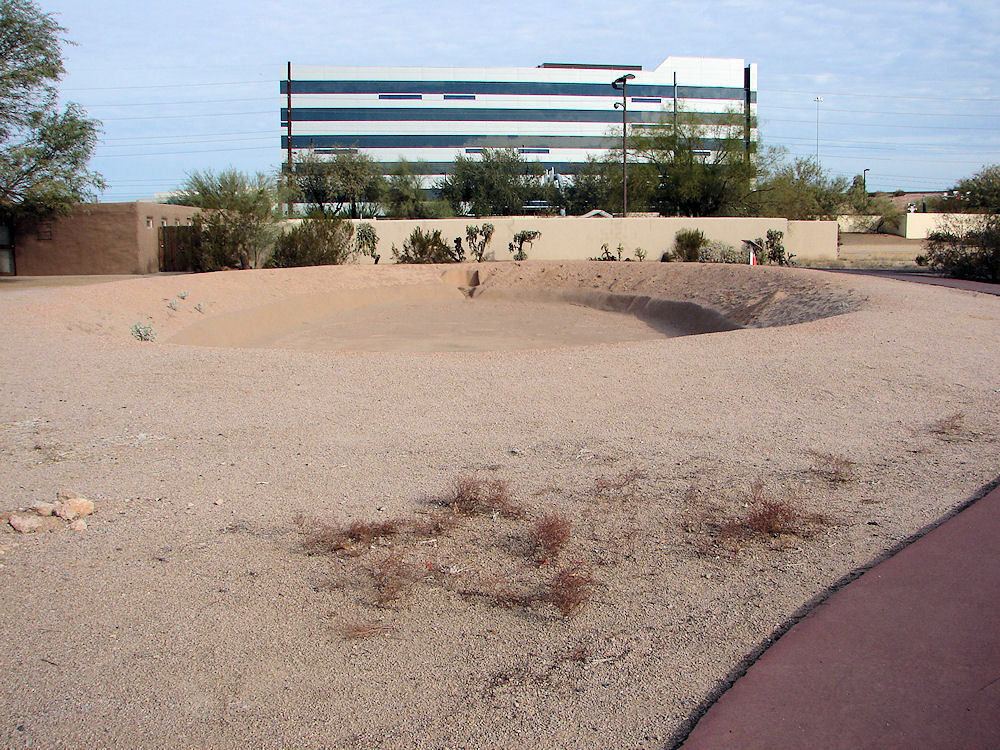 |
| Ballcourt. Pueblo Grande, Phoenix, Arizona. Ancient Hohokam Ruins. |
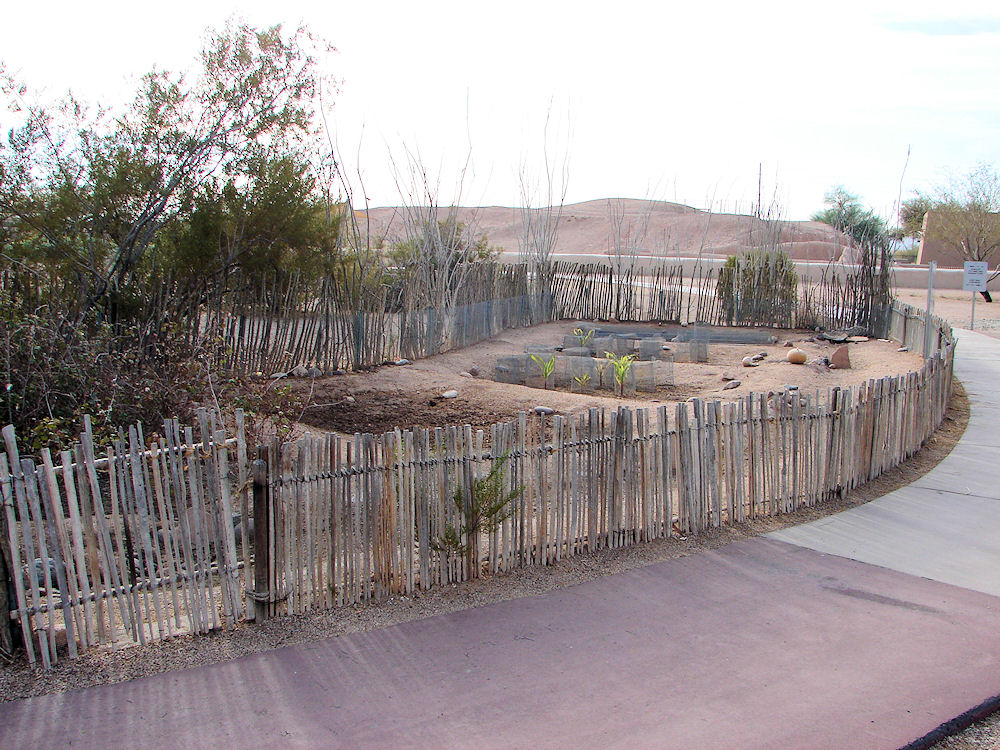 |
| Garden. Pueblo Grande, Phoenix, Arizona. Ancient Hohokam Ruins. |
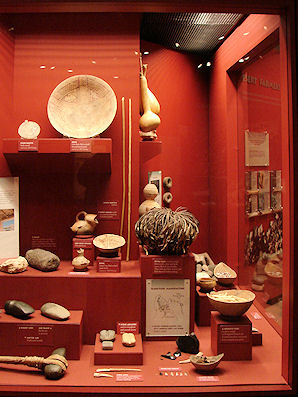 | 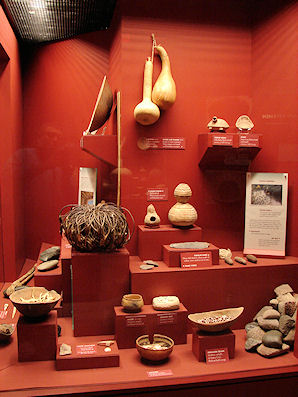 |
| Hohokam Tools & Artifacts Pueblo Grande, Phoenix, Arizona. | Hohokam Tools & Artifacts Pueblo Grande, Phoenix, Arizona. |
|---|---|
 |  |
| Hohokam Tools & Artifacts Pueblo Grande, Phoenix, Arizona. | Hohokam Tools & Artifacts Pueblo Grande, Phoenix, Arizona. |
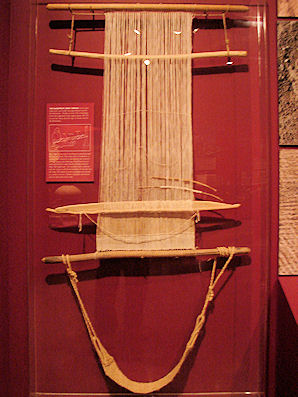 | 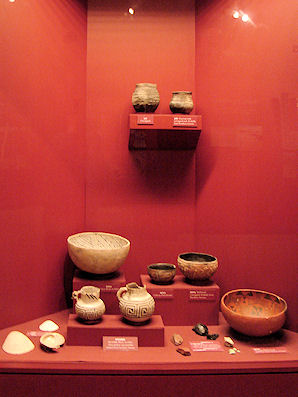 |
| Hohokam Tools & Artifacts Pueblo Grande, Phoenix, Arizona. | Hohokam Tools & Artifacts Pueblo Grande, Phoenix, Arizona. |
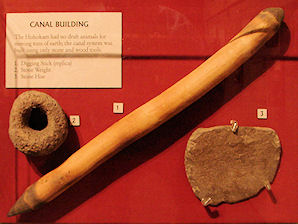 | 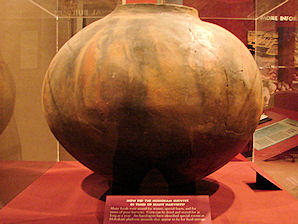 |
| Hohokam Tools & Artifacts Pueblo Grande, Phoenix, Arizona. | Hohokam Pottery Pueblo Grande, Phoenix, Arizona. |
|---|---|
 | 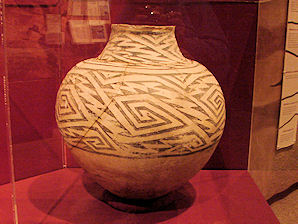 |
| Hohokam Petroglyphs Pueblo Grande, Phoenix, Arizona. | Hohokam Pottery Pueblo Grande, Phoenix, Arizona. |
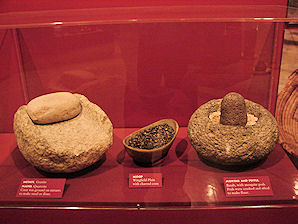 |  |
| Hohokam Tools & Artifacts Pueblo Grande, Phoenix, Arizona. | Hohokam Tools & Artifacts Pueblo Grande, Phoenix, Arizona. |
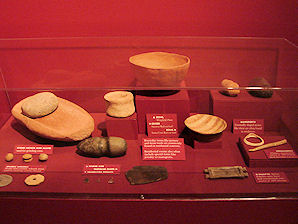 | 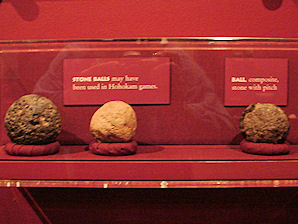 |
| Hohokam Tools & Artifacts Pueblo Grande, Phoenix, Arizona. | Hohokam Tools & Artifacts Pueblo Grande, Phoenix, Arizona. |

This is the easiest way to actually visit an ancient Hohokam village and to also see the ancient canal system that they developed. Many of the locals don't even know that the modern canal system we use today, was actually begun by these ancient Hohokam People. A Google Earth Map search marks the center of the entrance to Pueblo Grande at 33o 26' 52.00" N 111o 59' 03.68" W. The elevation is about 1,152 feet. It is thought that this site was used by the ancient Hohokam (ho-ho-KAHM) people in Phoenix, Arizona. According to oral tradition, the Hohokam may be the ancestors of the historic Akimel O'odham and Tohono O'odham peoples in Southern Arizona. The Hohokam culture, which spanned some 1450 years � from 1 A. D. in the first millennium to A. D. 1450 � suddenly appeared and vanished into the darkness of history. During that time, the Hohokam raised new standards in innovation, art, and craftsmanship. They also had trade and cultural connections into Mesoamerica. Based upon the first archaeological evidence, researchers believed that early Hohokam pioneers into northern Sonora and southern Arizona, imported a more advanced Mesoamerican influence into the area, founding the Hohokam culture, around the beginning of the first millennium. Based upon later archaeological evidence, other researchers believed that local descendants of the ancient hunting and gathering traditions of the desert, responded to influences from Mesoamerica and emerged as the Hohokam. Yet other students have suggested that the Hohokam immigrants arrived from an unknown Mesoamerican region and swept across the deserts of southern Arizona and northern Mexico. It is thought by those researchers that the Hohokam immigrants probably over ran the hunter/gatherers in the region of southern Arizona, sometime in the second half of the first millennium. Yet other investigators say that the Hohokam region was nothing more than a Mesoamerican frontier outpost. And others believe that the Hohokam culture represented nothing more than a local cultural development with a Mesoamerican tint. In any case, not much is known about their origins. The Hohokam occupied a geologically and ecologically diverse region, which extended from the basin and range and the low desert country of northern Sonora and southern Arizona northward into the Mogollon Rim escarpment and onto the southwestern edge of the Colorado Plateau. The Hohokam people had many settlements in the Gila and Salt River valleys of southern Arizona. They built rectangular pit houses from earth, rather than stone, and lived in small villages. They cremated their dead and placed the ashes in a specially prepared pit Although the Hohokam relied a great deal on hunting and gathering, they also were skilled farmers and excellent engineers. They were a peaceful people who cooperated to build large canal networks. Some of their canals were over ten miles long and used gravity to control water flow and to flush out the silt. Between the 7th and 14th centuries they built and maintained these extensive irrigation networks along the lower Salt and middle Gila rivers that rivaled the complexity of those used in the ancient Near East, Egypt, and China. These were constructed using relatively simple excavation tools, without the benefit of advanced engineering technologies. These highly successful agricultural techniques produced a surplus of food. Villages and populations grew. Over the next 1500 years the Hohokam expanded their settlements into the Tucson Basin, then to the Phoenix area, and as far north as present-day Flagstaff. A Brief Modern Day History: In 1924, the central portion of the Hohokam village of Pueblo Grande was first preserved when former president of the Arizona Archaeological and Historical Society, Thomas Armstrong, purchased the main Pueblo Grande platform mound and the surrounding three acres and donated the land to the City of Phoenix. He and others, wished to preserve some of the ancient history of the Salt River Valley since it was being rapidly destroyed by the rapid growth of farming and the development of the local cities, such as Phoenix. Later on in that same year, Omar Turney, the City of Phoenix Engineer, convinced the City of Phoenix to purchase about 10 acres of land south of the platform mound, which was known as the "Park of Four Waters". The "Park of Four Waters", contained the preserved remains of the main irrigation canals that supplied water to most of the ancient Hohokam villages on the north side of the Salt River. Latert on in 1929 the City hired Odd S. Halseth as its first Museum Director and City of Phoenix Archaeologist, (also the first city archaeologist in the United States). It was Odd S. Halseth�s plan to develop an outdoor museum in the main platform mound, an active archaeological laboratory with exhibits, with ongoing archaeological investigations. He also wanted all of this to be surrounded by a park demonstrating ethno-botanical gardens. Halseth�s plans were to incorporate the ongoing professional archaeological investigations of the site, with active educational programs for both schools and Pueblo Grande visitors. Using salvaged material from City projects, volunteer labor, and adobe blocks made on site from material excavated from the mound, Halseth began the construction of the first museum building in 1933 and completed the Museum in 1935 for the cost to the City of $14.95 for nails. Halseth mostly promoted Pueblo Grande as a museum and cultural park until his retirement in 1960. During that time, Pueblo Grande acquired approximately 14 additional acres of land to the west and north of the platform mound. In 1960 Donald Hiser became the Museum Director and City Archaeologist. In 1963 the National Park Service recognized the Park of Four Waters as a National Historic Landmark and in 1964 the Pueblo Grande platform mound as as a National Historic Landmark. Between 1968 and 1986 the City acquired an additional 72 acres surrounding the site, bringing the total acreage of Pueblo Grande Museum and Cultural Park to over 102 acres. Due to the proposed construction of the Hohokam Expressway and the imminent expansion of Sky Harbor Airport, the two National Historic Landmarks at Pueblo Grande were combined into one landmark in 1974. Also in 1974 the old Museum building was replaced by the present main Museum building. Especially designed to represent a truncated pyramid, showing the possible relationship between the Hohokam and Mexican cultures. The very first annual Indian Market was held at the Museum in 1977. Also the Museum Auxiliary was established, creating a badly needed volunteer organization. In 1984 David E. Doyel, became the third Museum Director and City Archaeologist. Doyel continued the projects begun by Hiser. In 1988 the National Park Service conducted stabilization on the ballcourt and platform mound. This project also included the establishment of a trail system complete with interpretive signage. In 1989 the Pueblo Grande Museum Archival Project was started. In 1990, Todd Bostwick was appointed City Archaeologist and Roger Lidman assumed the role of Museum Director. Todd Bostwick oversaw a very extensive mound stabilization project, contracting with stabilization specialists from the National Park Service to preserve the deteriorating platform mound. The old trail system that explored the mound was completely redesigned, making it wheelchair accessible, and new interpretive signage was installed. Roger Lidman upgraded museum operations and programs. In 1995, a major building expansion project was completed. Pueblo Grande Museum added new buildings and opened a new Community Room where public meetings and events are held. Between 1995 and 2002, the trail system was extended to the ballcourt and a native garden was added to showcase plants that the Hohokam cultivated. A full-scale replica of a Classic Period compound and a Pre-Classic pit house cluster along the expanded interpretive trail system have also been constructed. Pueblo Grande Museum and Archaeological Park: 4619 E. Washington Street Phoenix, AZ 85034 Phone: 602.495.0901
|
If you are planning to visit Pueblo Grande. And if you are coming from outside of Arizona, you could fly into the Phoenix Sky Harbor International Airport and then rent a car. There are many hotels and motels in the area. We have some links to Priceline.com on this page since they can arrange all of your air flights, hotels and car. We also have some links to Altrec.com on this page since they are a good online source for any outdoor camping gear and clothing that you may need. We of course, appreciate your use of the advertising on our pages, since it helps us to keep our pages active.
|
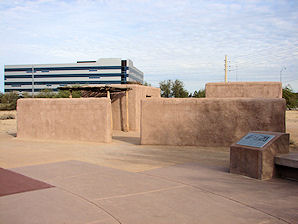 | 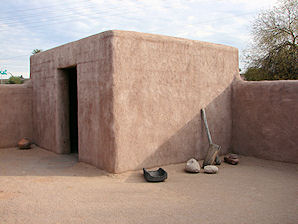 |
| Compound Replica Pueblo Grande, Phoenix, Arizona. | Compound Replica Pueblo Grande, Phoenix, Arizona. |
|---|---|
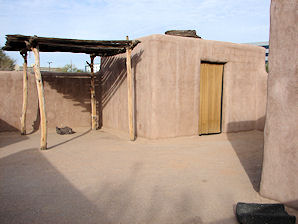 | 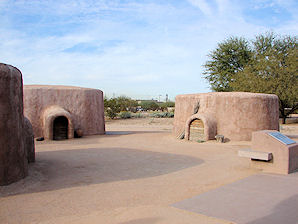 |
| Compound Replica Pueblo Grande, Phoenix, Arizona. | Pit House Replica Pueblo Grande, Phoenix, Arizona. |
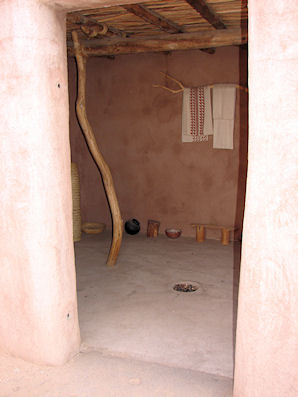 | 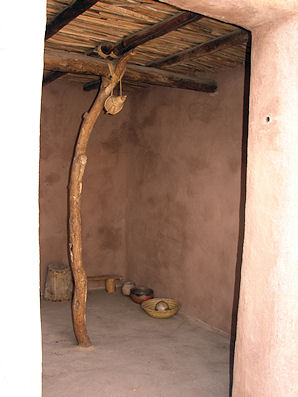 |
| Inside Compound Replica Pueblo Grande, Phoenix, Arizona. | Inside Compound Replica Pueblo Grande, Phoenix, Arizona. |
 | 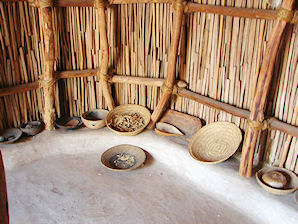 |
| Inside Pit House Replica Pueblo Grande, Phoenix, Arizona. | Inside Pit House Replica Pueblo Grande, Phoenix, Arizona. |
 | 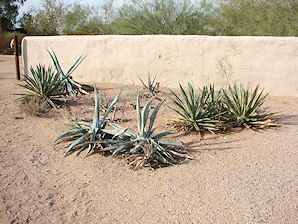 |
| Agave Roasting Pit Pueblo Grande, Phoenix, Arizona. | Agave Pueblo Grande, Phoenix, Arizona. |
 |
| Ancient Hohokam Canal System Map. Drawn By: Dr. Omar A. Turney. 1929. |
|---|
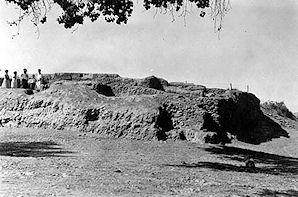 | 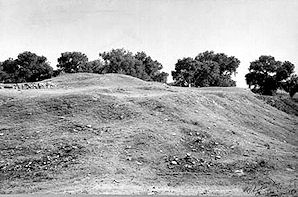 |
| Platform Mound During Excavation. Odd S. Halseth ca. 1923-33 Photograph Pueblo Grande, Phoenix, Arizona. | Platform Mound Looking Southeast Toward Trees Along The Grand and Crosscut Canals Odd S. Halseth ca. 1933 Photograph Pueblo Grande, Phoenix, Arizona. |
|---|---|
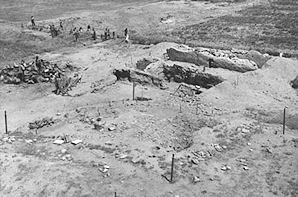 | 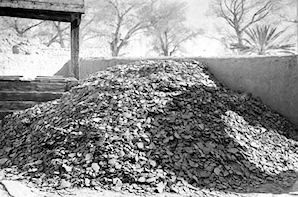 |
| Block Excavations Of Ballcourt Odd S. Halseth ca. 1937 Photograph Pueblo Grande, Phoenix, Arizona. | About 1/2 Million Pottery Shards Odd S. Halseth Photograph Pueblo Grande, Phoenix, Arizona. |
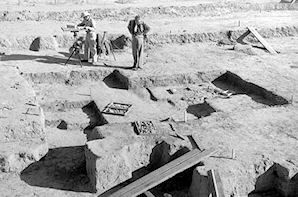 | 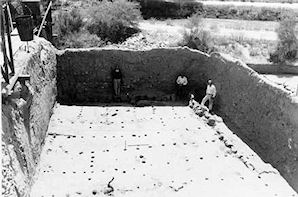 |
| Excavated Rooms JH 44, JH 45, JH 46, & JH 47 Odd S. Halseth ca. 1923-33 Photograph Pueblo Grande, Phoenix, Arizona. | Floor Of The Storage Room Showing The Post Hole Patterns And Post Reinforced Wall Exposed By J.W. Simmons During PWA Work |
We Are Proud Of Our SafeSurf Rating!

Click On Any Of The Following Links By Amazon.Com
For Books, & Videos About About Arizona Native American Ruins. No Obligation!
Click On Any Of The Following Links By Amazon.Com
For Books, & Videos About Touring Arizona. No Obligation!



